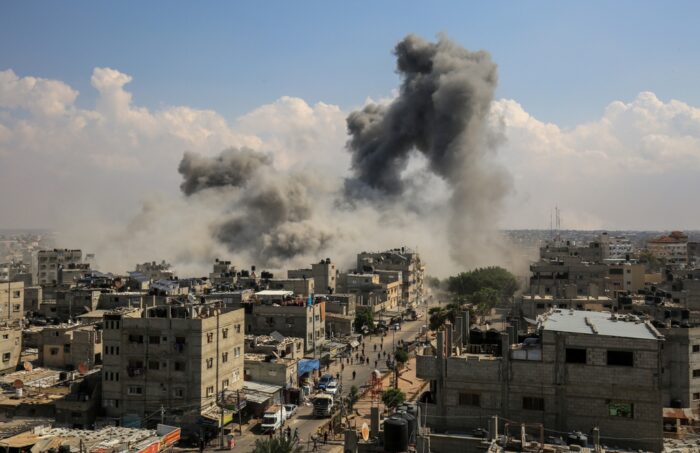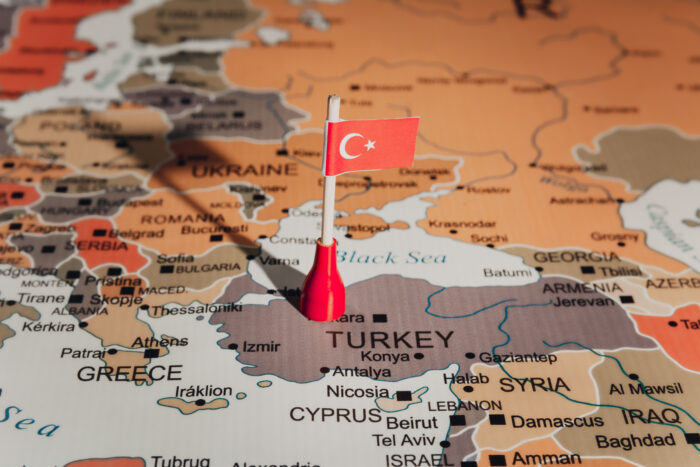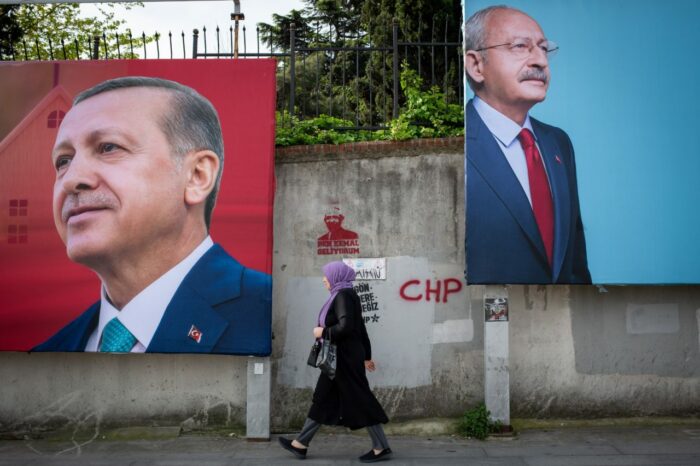The Progressive Post
Latin America’s pragmatic ambiguity in response to Russia’s invasion of Ukraine

Latin America’s stance on the Russian invasion of Ukraine has been ambiguous, except for a handful pro-Russia, authoritarian regimes. Opting to steer clear of explicit positions seems to be a pragmatic choice, inserted in a broader foreign policy. Such orientation pursues structural changes in the international order, which is perceived as failing and biased.
Seen from a European perspective, it can be difficult to understand why Latin America, a region with shared history, culture and values, has not aligned with the West’s strong condemnation of Russia’s aggression on Ukraine. It can be equally challenging to make sense of this response without resorting to oversimplifications about shared ideology or economic dependency on Russia and China, or the result of Russian misinformation. Latin America’s stance on the conflict near Europe’s doorstep is not primarily rooted in these factors, but rather in an active and pragmatic foreign policy aimed at leveraging national interests in an ever-turbulent international context that has been recently termed ‘active-non-alignment‘ by Latin American experts. According to this principle – which had been in place already before Russia’s aggression on Ukraine and is increasingly adopted by Latin American nations – in the current US-China rivalry, they should refrain from forging unconditional alliances with either Washington or Beijing. Instead, they should prioritise their own national interests and evaluate how to position themselves on a case-by-case basis. Yet, Latin America is heterogeneous. To different degrees and depending on the remaining influence of the US, this can be a challenging balancing act.
Notably, most Latin American nations have officially condemned Russia’s invasion through their votes on the UN resolutions. Countries like Argentina, Chile, Colombia, Ecuador, Peru, Paraguay, Uruguay and others consistently voted in favour of Ukraine. The number of countries that either abstained or voted against the resolutions was much lower than on the African continent. The usual suspects – Cuba, Nicaragua and Venezuela – have stood by Russia, both rhetorically and in continued economic relations, but, along with Bolivia and El Salvador, they did not outrightly reject all UN resolutions, but rather chose to abstain or remain absent.
However, Brazil’s abstention on the resolutions calling for the suspension of Russia from the Human Rights Council and for Russia to pay reparations to Ukraine, and Mexico’s abstention on the former, have raised eyebrows. The UN vote does not tell the full story, as Brazilian President Lula da Silva and Mexican President Andrés Manuel López Obrador have declared neutrality and attempted to play the role of peace mediators, although unsuccessfully. Brazil aspires to be involved in peace negotiations because it believes it is placed in an ideal position to talk to all sides (including Russia, a fellow member of the BRICS). The role of peace broker seems coherent with Brazil’s diplomatic tradition anchored in non-interventionism, pacifism and dialogue, and President Lula perceives this role as an opportunity to enhance the country’s relevance in global politics. The position of Argentine’s president Alberto Fernández also evolved from mostly a pro-West stance towards relative neutrality, explained partly by its prospects to join the BRICS. Only Chilean president Gabriel Boric has strongly condemned Putin’s invasion from the outset. What seems clearer and consistent is Latin America’s refusal to join the West in sanctioning Moscow and sending arms to the Ukrainian forces. The region sees the war as regrettable, but above all as a conflict that must be managed by ceasefires and compromises as soon as possible to avoid further disruptions.
These divides exemplify how global power dynamics can cut across a region and across ideological lines when it comes to adopting a clear stance on a conflict that may appear distant at first glance. Despite these divisions, it is essential to recognise that Latin America’s lukewarm position is not due to the belief that the war is unimportant or distant. On the contrary, Latin American leaders understand the interconnectedness of the world and how its economies are closely linked and dependent on the main powers. Latin America recently faced the harsh impact of the Covid-19 pandemic and the war in Europe further disrupted economic growth projections and aggravated food insecurity and living costs. By pursuing a more autonomous foreign policy, Latin American nations seek stable relations with all key international players in a multipolar world.
Some analysts attribute Latin America’s non-alignment to the attempt to maximise economic gains by simultaneously maintaining relations with China, the US and Russia. In effect, relations with China involve major material interests. However, Latin America’s pragmatic ambiguity reflects foreign policy principles that have been present before Russia’s full-scale invasion. These principles have evolved from unconditional alignment to a dominant power towards the prioritisation of national interests. Taking Brazil as an example, when Lula started his third term by declaring Brazil was back on the global scene, this meant the country would again aspire to position itself as a rule-maker. In his previous terms (2003-2011), Lula put in place an active foreign policy aimed at contesting the regulating mechanisms of the global order and has done so by advocating for reforming the United Nations Security Council, promoting the G20 forum to have a stronger role in economic negotiations vis-à-vis the G7 and strengthening structures outside the traditional international institutions, such as the BRICS. Lula relaunched this ambition in 2023, and as a result, we have seen Brazil’s engagement to revive and expand the BRICS and create new groupings like the rainforest alliance with Indonesia and the Democratic Republic of the Congo, for example.
The current international crisis with all its repercussions has intensified Latin America’s search for a more just, effective and representative international order, one in which it can genuinely influence decisions on main issues, such as extreme poverty, climate change, foreign debt, human rights violations and pandemics. The region requires structural changes in what it perceives as an archaic global governance architecture that has served the interests of the West. It does not want to be forced to take sides or return to a binary global segmentation that caused much harm during the Cold War.
In the context of this war, China has indirectly supported Russia, and Latin America is keen on maintaining collaboration with the Asian superpower, as China is a key trade and investment partner. Nevertheless, the West must assess why it has lost attractiveness in Latin America and work on rebuilding its credibility. As it happens, engaging in constructive partnership with Latin America is paramount for Europe, not only due to the region’s significance in enabling Europe to achieve its Green Deal goals, including by contributing to the reduction of its dependence on Russian gas, but also to fulfil global climate commitments. Latin America’s non-alignment is an opportunity for European engagement, because, unlike in Asia and Africa, where avoiding taking sides can be more challenging, Latin America’s approach opens additional avenues for cooperation on a case-by-case basis.
The Spanish Presidency of the Council of the EU announces a renewed commitment to engage with Latin America. Europe should avoid framing EU-Latin America relations solely around Russia’s invasion of Ukraine, and it should not assume that Latin American positions are merely driven by Russian propaganda or by economic dependencies. Latin America seeks relationships that offer realistic solutions to its complex problems. Insisting on the narrative of this war as being a fight between democracy and autocracy does not resonate with the region, where several countries are sizable democracies. Instead, treating Latin America’s calls for reforming the international order as legitimate and presenting an attractive offer for development cooperation will be crucial in fostering an equal-level partnership. The recent announcement of a €10 billion EU investment through the Global Gateway initiative is a positive development.
Finally, European leaders should deliver on their promises – including making progress on the much-expected EU-Mercosur trade agreement. The agreement is stalled because the French side, in particular, alongside the European Parliament and national parliaments, has called for the introduction of clauses forcing producers on both sides to respect high environmental standards, and Mercosur does not favour adding any annexe to the agreement reached in 2019. At the exact opposite of what the West has urged Latin America to do, Latin America perceives the West as closing its economies and practising protectionism, while the region seeks more interactions with the world, not less. Instead, Europeans could make the risks of relying on authoritarian powers clear and share best practices on how to build more resilience in an increasingly interdependent and unstable world. Only a substantial EU-Latin America partnership can enable the delivery of commonly agreed climate commitments at the global level.
Photo credits: European Union




